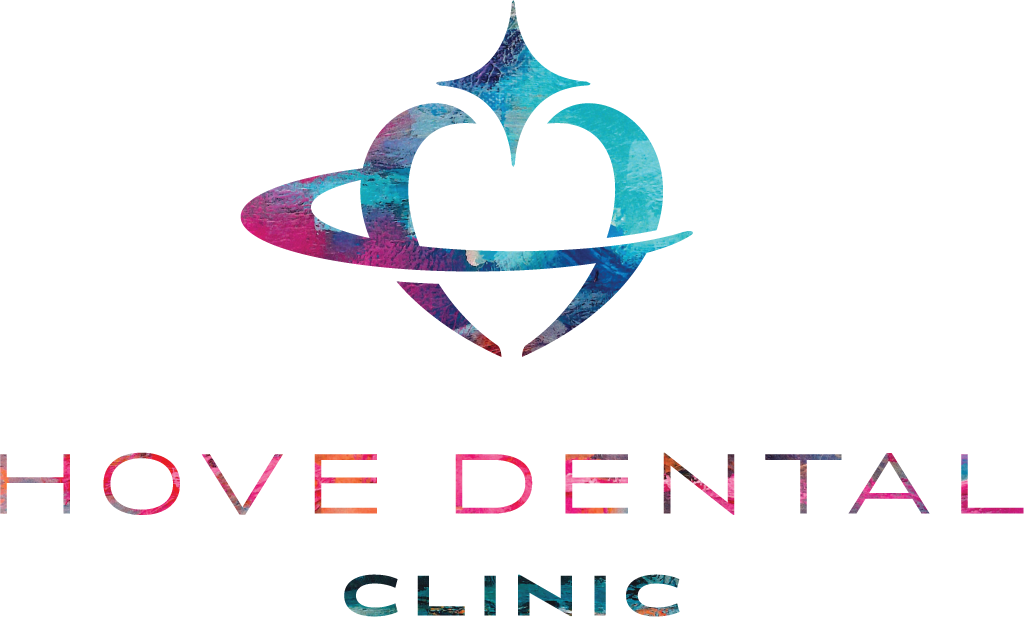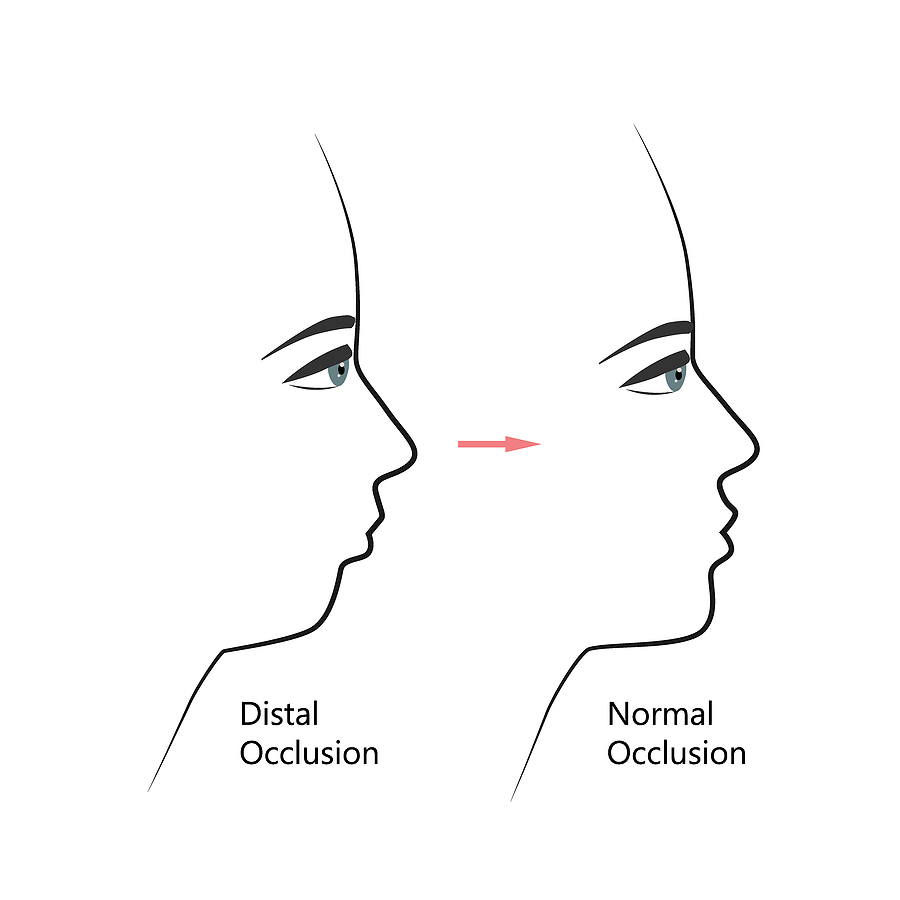The causes of an overbite are largely genetic, with baby teeth sometimes influencing the shape of the jaw. Using pacifiers late into a child’s development and finger or thumb sucking are all causes of an overbite. Nail-biting is another potential cause for groups such as children, teenagers and adults.
What is an Overbite?
An overbite is a type of malocclusion, biting in an incorrect position, that causes the appearance of the front teeth protruding outwards over the jaw. Sometimes people call an overbite ‘buck teeth’, though this is a non-medical term and may be considered insensitive. Overbite issues can affect both children and adults.
Symptoms are visually self-evident in most cases, but slight overbites may be less noticeable. Overbites may result in the following common symptoms:
- Bad bites: Teeth must be correctly aligned to function properly. If the upper jaw is not in the correct position, the top and bottom teeth will not bite together right. This may cause jaw pain and difficulty chewing and speaking.
- Jaw problems: The jaw problems from an overbite can cause pain and issues such as headaches, earaches, jaw stiffness and even neck pain. Poor jaw position can cause severe pain in an untreated overbite and may worsen.
- Psychological conditions: Various mental health issues can arise from the appearance of an overbite, as well as the discomfort of the malocclusion itself. Potential problems include low self-esteem, anxiety and a reluctance to smile.
To fix an overbite you will require a dental professional to assess the severity of the condition and determine the best course of treatment. Many methods to correct an overbite involve orthodontic treatment and are very effective, especially in children.
In severe cases, an oral surgeon will need to develop a treatment plan. Most overbites will respond effectively to the best treatments, but correcting a deep overbite that is present in an adult will be difficult, lengthy and expensive in the majority of cases.
As leading providers of dental treatments, we are well-placed to explain some of the details of overbites. You can book an appointment for an overbite and other issues in the Brighton and Hove area of the UK at our clinic, so please feel free to get in touch.
What is the Difference Between an Overbite and an Underbite?
An overbite affects the top of the mouth, an underbite affects the bottom of the mouth. Aesthetically, an overbite is when the front teeth jut out and an underbite is when the bottom teeth jut out. Both an underbite and an overbite are a form of malocclusion, largely genetic and affect the alignment of the jaw – causing a bad bite.
How Can an Overbite Affect Your Dental Health?
Aside from the visual appearance, biting issues and jaw pain, an untreated overbite can form the basis of many other dental problems – so it is important to fix an overbite. The following are some potential complications of an untreated overbite:
- Tooth decay: Due to the misalignment, you are more likely to grind the enamel of your teeth if you have an overbite. As a result, tooth decay is much more likely to occur. This may result in infection and tooth loss in many cases.
- Gum disease: Particularly bad overbites can affect the gumline, as gums are not meant to have contact or wear in a healthy bite. Periodontal disease and conditions such as receding gums or gingivitis can develop from an overbite.
- Temporomandibular joint (TMJ) disorders: In severe cases, TMJ can develop in people with untreated overbites. You might find it difficult to control your jaw and carry out simple tasks such as eating and talking without treatment.
Even with proper dental care, the risks from an overbite can make it difficult to stop issues that are otherwise preventable in healthy teeth. If you have an overbite, the sooner you receive treatment to correct the problem the better the outcome will be.
Overbite Treatment Options
The treatment options for an overbite are different for adults and children. As a child’s teeth are much more receptive to adjustment, treatments are generally simpler and less invasive. Adult treatments take longer and have a bigger impact.
The following are some potential treatments for correcting an overbite:
- Adult treatments: Braces can be the first option. If braces do not help then tooth extraction may be necessary to help the other teeth to move properly. Jaw surgery may be the only treatment option for the most severe adult cases.
- Child treatments: Braces and retainers have a solid impact on growing teeth, so they work well for most children. Other straightening devices are another option. Extracting baby teeth will help permanent teeth to come in straighter.
The best treatment for an overbite will depend on a range of factors, notably a person’s age and the severity of their condition. It is always better to treat an overbite in childhood, so parents should be aware of their child’s problems and fix them early.
Overbites Explained
An overbite is largely genetic and causes the appearance of the front teeth protruding over the jaw. Untreated they can cause many issues such as tooth, gum and jaw problems. Treatments include corrective devices or surgery in some cases.
It is important to have a dental professional examine your overbite and decide on the best treatment. If you have an overbite and would like to book a dental appointment in the Brighton and Hove area you can get in touch with us and visit our clinic.
01273 900933
hello@hovedentalclinic.co.uk
Mon – Fri: 8:30 – 18:00
Sat: By appointment only
Sun: Closed





















